Prototypes Stirlitz. How the legend was born
In fact, the figure of Maxim Maximovitch Isaev (in fact, Vsevolod Vladimirovich Vladimirov), the elusive Colonel of Soviet intelligence, is a literary copy of the classified materials obtained by the writer in the archives of the special services. Behind every line of stories about Colonel Isaev are real people, Soviet intelligence agents, who have entered into a deadly confrontation with fascism. The names of most of them today are already declassified. And each is a legend. And we have to remember them.
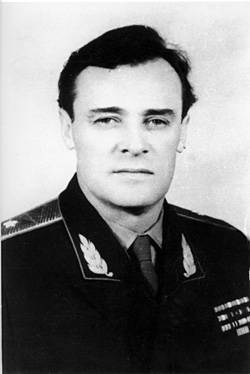 In one of the series of the movie “Seventeen Moments of Spring”, a brief description of Stirlitz is given, which says that he is the champion of Berlin in tennis. Alexander Korotkov was the only Soviet intelligence officer professionally involved in tennis and football, although he did not manage to get to the title of champion. Besides, being a secret agent and a champion in any kind of sport in real life is almost impossible. In addition to the need for constant training the identity of the athlete is under the scrutiny of the public and special services. For Korotkov, his secret intelligence career began precisely from the tennis court, where he was first noticed by the security officers. Later, on the recommendation of V.L. Gerson, he got a job at Lubyanka as a regular lifter. Soon, Korotkov was transferred to the position of clerk in a foreign department, and later he was sent to individual training, which every intelligence officer had to undergo at that time. Alexander was taught driving a car, owning various kinds weaponsHe perfectly learned German. After several years of hard work, he was sent abroad. Before the war, Korotkov worked in France, leading a group set up specifically to eliminate traitors. He is credited with the destruction of Agabekov and Clement. At the end of the thirties, the name of Korotkov was recognized by many in a narrow circle of professional intelligence officers. On the eve of the new 1939, Beria summoned Alexander and several other agents. However, instead of the expected congratulations, he told them ... about the dismissal. Impulsive Korotkov did not want to put up with such an outcome and decided on a desperate act - he wrote a private letter to Beria, in which he demanded that he be reinstated at work without justification or request. Korotkov understood that such a move was tantamount to suicide, but he dared to argue in detail about the whole groundlessness of his resignation. To everyone's surprise, after reading the letter, Beria restored him to service. In 1940, Korotkov worked in Berlin as a secret agent, and in March, 1941, perhaps he was the first to convey information about the inevitability of Germany’s attack on the USSR. In the early forties, Korotkov, in the midst of the most brutal counterintelligence activity of the fascists, managed to establish a reliable connection with the underground group "Red Chapel", which was engaged in undermining the Hitler regime. With the help of underground radio stations, this organization transmitted secret information for the USSR and allied countries.
In one of the series of the movie “Seventeen Moments of Spring”, a brief description of Stirlitz is given, which says that he is the champion of Berlin in tennis. Alexander Korotkov was the only Soviet intelligence officer professionally involved in tennis and football, although he did not manage to get to the title of champion. Besides, being a secret agent and a champion in any kind of sport in real life is almost impossible. In addition to the need for constant training the identity of the athlete is under the scrutiny of the public and special services. For Korotkov, his secret intelligence career began precisely from the tennis court, where he was first noticed by the security officers. Later, on the recommendation of V.L. Gerson, he got a job at Lubyanka as a regular lifter. Soon, Korotkov was transferred to the position of clerk in a foreign department, and later he was sent to individual training, which every intelligence officer had to undergo at that time. Alexander was taught driving a car, owning various kinds weaponsHe perfectly learned German. After several years of hard work, he was sent abroad. Before the war, Korotkov worked in France, leading a group set up specifically to eliminate traitors. He is credited with the destruction of Agabekov and Clement. At the end of the thirties, the name of Korotkov was recognized by many in a narrow circle of professional intelligence officers. On the eve of the new 1939, Beria summoned Alexander and several other agents. However, instead of the expected congratulations, he told them ... about the dismissal. Impulsive Korotkov did not want to put up with such an outcome and decided on a desperate act - he wrote a private letter to Beria, in which he demanded that he be reinstated at work without justification or request. Korotkov understood that such a move was tantamount to suicide, but he dared to argue in detail about the whole groundlessness of his resignation. To everyone's surprise, after reading the letter, Beria restored him to service. In 1940, Korotkov worked in Berlin as a secret agent, and in March, 1941, perhaps he was the first to convey information about the inevitability of Germany’s attack on the USSR. In the early forties, Korotkov, in the midst of the most brutal counterintelligence activity of the fascists, managed to establish a reliable connection with the underground group "Red Chapel", which was engaged in undermining the Hitler regime. With the help of underground radio stations, this organization transmitted secret information for the USSR and allied countries.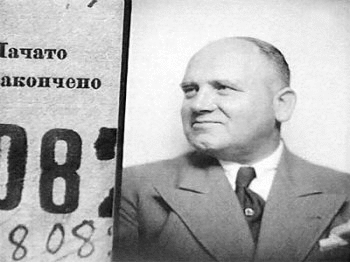 19 June 1941-th scout, who worked under the pseudonym Breitenbach, informed the Soviet leadership about the planned German attack in three days. According to many sources, this agent can also be considered as one of the prototypes of Stirlitz. Under the secret name was Wilhelm Lehmann, who, like Stirlitz, was an officer of the Gestapo, SS Hauptsturmführer and a spy of the Soviet Union. According to some sources, the initial initiative came from the German officer himself, he consciously sought to meet with the Soviet intelligence, until he was officially recruited. Lehman's desire to work for the USSR was dictated by his intransigence to the basic ideals of fascism. The good-natured and affable person, who was Lehman, at work (in the IVth section of the RSHA of the Gestapo) was called by many "Uncle Willy." No one, including his wife, could even suggest that this balding, kind-hearted man, suffering from renal colic and diabetes, is a Soviet agent. Before the war, he transmitted information about the timing and production of self-propelled guns and armored personnel carriers, the development of new nerve agents and synthetic gasoline, the start of testing liquid-fuel rockets, the structure and personnel of the German special services, counterintelligence operations of the Gestapo, and much more. Documents confirming the fact of the impending attack on the Soviet Union, Lehman sewed into the lining of his hat, which he then quietly replaced with a similar headdress when meeting with the Soviet representative in a cafe.
19 June 1941-th scout, who worked under the pseudonym Breitenbach, informed the Soviet leadership about the planned German attack in three days. According to many sources, this agent can also be considered as one of the prototypes of Stirlitz. Under the secret name was Wilhelm Lehmann, who, like Stirlitz, was an officer of the Gestapo, SS Hauptsturmführer and a spy of the Soviet Union. According to some sources, the initial initiative came from the German officer himself, he consciously sought to meet with the Soviet intelligence, until he was officially recruited. Lehman's desire to work for the USSR was dictated by his intransigence to the basic ideals of fascism. The good-natured and affable person, who was Lehman, at work (in the IVth section of the RSHA of the Gestapo) was called by many "Uncle Willy." No one, including his wife, could even suggest that this balding, kind-hearted man, suffering from renal colic and diabetes, is a Soviet agent. Before the war, he transmitted information about the timing and production of self-propelled guns and armored personnel carriers, the development of new nerve agents and synthetic gasoline, the start of testing liquid-fuel rockets, the structure and personnel of the German special services, counterintelligence operations of the Gestapo, and much more. Documents confirming the fact of the impending attack on the Soviet Union, Lehman sewed into the lining of his hat, which he then quietly replaced with a similar headdress when meeting with the Soviet representative in a cafe.In 1942, the Germans were able to declassify the brave scout. Himmler was simply shocked by this fact. An employee who had been working for the Gestapo for thirteen years constantly supplied information to the USSR and was never even suspected of espionage. The very fact of his activity was so shameful for the SS that the Lehmann case was completely and completely destroyed before it reached the Führer, and the intelligence officer was hastily shot shortly after his arrest. Even the agent's wife for a long time did not know about the true causes of the death of her spouse. His name was included in the list of those killed for the Third Reich. Of all the Soviet intelligence officers, it was Lehmann who held the position of a high-ranking SS officer similar to Stirlitz, surrounded by the arbiters of Germany and entered the heart of the Reich.
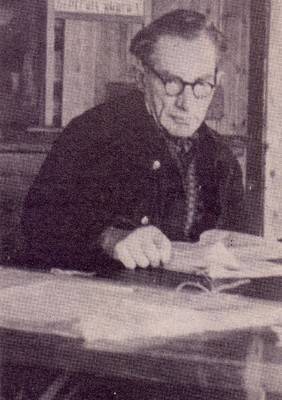 In the late nineties, the version was born that the real surname of the literary character of Stierlitz, Isaev, appeared thanks to the really existing intelligence officer Isaiah Isaevich Borovoy. Having slightly changed his name, Julian Semenov created Maxim Maximovich. And very little is known about Isaia Borov, since the personal file of the resident is still classified. The agent's relatives say that he, like Stirlitz, led the Soviet military intelligence in Europe and was introduced into the upper echelons of the command of the Third Reich. However, Borovoy worked there before the war, by order of the command he surrendered to the Americans, who forwarded it to the Soviet Union. Despite the great services to the Motherland, upon returning home to Borovoy, instead of the awards, a reference to Siberia was awaiting. The reason for the arrest of the agent remained a secret with seven seals. The measures for cleansing the intelligence officer from the filth of the rotten West were so cruel that, before dying, Borovoye had broken arms and legs, and the spine was damaged. Relatives did not know where his body was buried.
In the late nineties, the version was born that the real surname of the literary character of Stierlitz, Isaev, appeared thanks to the really existing intelligence officer Isaiah Isaevich Borovoy. Having slightly changed his name, Julian Semenov created Maxim Maximovich. And very little is known about Isaia Borov, since the personal file of the resident is still classified. The agent's relatives say that he, like Stirlitz, led the Soviet military intelligence in Europe and was introduced into the upper echelons of the command of the Third Reich. However, Borovoy worked there before the war, by order of the command he surrendered to the Americans, who forwarded it to the Soviet Union. Despite the great services to the Motherland, upon returning home to Borovoy, instead of the awards, a reference to Siberia was awaiting. The reason for the arrest of the agent remained a secret with seven seals. The measures for cleansing the intelligence officer from the filth of the rotten West were so cruel that, before dying, Borovoye had broken arms and legs, and the spine was damaged. Relatives did not know where his body was buried.Some researchers are also inclined to believe that Mikhail Mikhalkov, the brother of a famous Soviet writer who was an illegal agent during the period of the Great Domestic, who supplied Russian intelligence agencies with important operational data, could have been a prototype of Stirlitz. As a relative of Mikhalkov, Julian Semenov knew his life historythat is why he could partially use it in his works. In 1945, during the battle, Michael crossed the front line and fell into the hands of his “native” military counterintelligence. He was accused of collaborating with the Germans and imprisoned first in Lefortovo prison, and then in one of the concentration camps in the Far East. Rehabilitated scout only in 1956-th year.
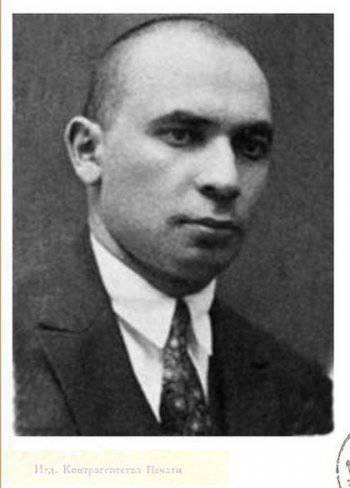 The prototype of the young Stirlitz can be the Cheka officer Jacob Blumkin. Interestingly, among his pseudonyms are the names of Vladimirov and Isaev. They also have one date of birth with Stirlitz - 8 of October 1900 of the year. Blumkin's biography is extremely entertaining. He was highly valued by Dzerzhinsky and Trotsky, he participated in the assassination of German ambassador Mirbach, noted the assassination attempt on Hetman Skoropadsky and German field marshal Eichhorn, “expropriated” the values of the Gosbank together with Mishka Yaponchik, overthrew the Persian chief Khuchek Khan and created the Iranian communist. One episode from the life of Blumkin almost completely became the basis of the plot of Semenov's book "Diamonds for the dictatorship of the proletariat". In the mid-twenties, Jacob graduated from the Academy of the General Staff of the Red Army and dealt with the Eastern question, traveled around China, Palestine, Mongolia, and lived in Shanghai. In the summer of 1929, Blumkin returned to the capital to report on his work, but was soon arrested for his old ties with Leon Trotsky. At the end of the same year, Blumkin was shot.
The prototype of the young Stirlitz can be the Cheka officer Jacob Blumkin. Interestingly, among his pseudonyms are the names of Vladimirov and Isaev. They also have one date of birth with Stirlitz - 8 of October 1900 of the year. Blumkin's biography is extremely entertaining. He was highly valued by Dzerzhinsky and Trotsky, he participated in the assassination of German ambassador Mirbach, noted the assassination attempt on Hetman Skoropadsky and German field marshal Eichhorn, “expropriated” the values of the Gosbank together with Mishka Yaponchik, overthrew the Persian chief Khuchek Khan and created the Iranian communist. One episode from the life of Blumkin almost completely became the basis of the plot of Semenov's book "Diamonds for the dictatorship of the proletariat". In the mid-twenties, Jacob graduated from the Academy of the General Staff of the Red Army and dealt with the Eastern question, traveled around China, Palestine, Mongolia, and lived in Shanghai. In the summer of 1929, Blumkin returned to the capital to report on his work, but was soon arrested for his old ties with Leon Trotsky. At the end of the same year, Blumkin was shot.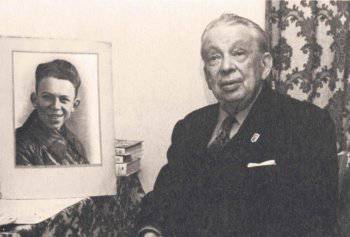 Another prototype of Stirlitz is Anatoly Gurevich. He volunteered to go to war in Spain, and after returning home he received an offer to become a scout. His specialization after training in the GRU became ciphers and radio stations. Under the name of Vincent Sierra, Anatoly began his work in Brussels, later he was a member of the Red Chapel, he had the pseudonym Kent. In Belgium, he married the daughter of a wealthy industrialist, who transferred part of his enterprises to Gurevich. It was he who in the autumn of 1941 reported to Moscow about the German strike being under way at Stalingrad and in the Caucasus. Largely thanks to this information, the Red Army prevailed in these operations, thousands of our compatriots survived. In the 1941 year, Anatoly's transmitter was tracked. The scout together with his wife had to flee to France, to the city of Marseilles, where they were soon arrested. It was only after this that Margaret’s wife learned that her husband was a Soviet spy. The great shock for the Soviet agent was the information that his codes were hacked, and the German counterintelligence was involved in a radio game. Nevertheless, Gurevich managed to survive. After the war, the scout parted with his wife returned to Russia. With the sentence of Anatoly, the Soviet command did not hesitate - it gave twenty years in prison under the clause "treason". In fact, he spent about twenty-five years in prison. Accusations of treason were dropped only in 1991. Anatoly Gurevich died in January 2009 of his ninety-sixth year of life.
Another prototype of Stirlitz is Anatoly Gurevich. He volunteered to go to war in Spain, and after returning home he received an offer to become a scout. His specialization after training in the GRU became ciphers and radio stations. Under the name of Vincent Sierra, Anatoly began his work in Brussels, later he was a member of the Red Chapel, he had the pseudonym Kent. In Belgium, he married the daughter of a wealthy industrialist, who transferred part of his enterprises to Gurevich. It was he who in the autumn of 1941 reported to Moscow about the German strike being under way at Stalingrad and in the Caucasus. Largely thanks to this information, the Red Army prevailed in these operations, thousands of our compatriots survived. In the 1941 year, Anatoly's transmitter was tracked. The scout together with his wife had to flee to France, to the city of Marseilles, where they were soon arrested. It was only after this that Margaret’s wife learned that her husband was a Soviet spy. The great shock for the Soviet agent was the information that his codes were hacked, and the German counterintelligence was involved in a radio game. Nevertheless, Gurevich managed to survive. After the war, the scout parted with his wife returned to Russia. With the sentence of Anatoly, the Soviet command did not hesitate - it gave twenty years in prison under the clause "treason". In fact, he spent about twenty-five years in prison. Accusations of treason were dropped only in 1991. Anatoly Gurevich died in January 2009 of his ninety-sixth year of life.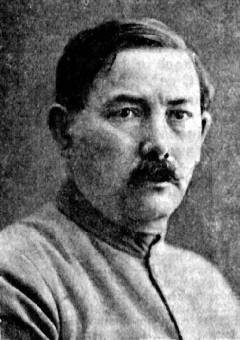 Regarding the character of Stirlitz, Julian Semenov himself claimed that he stopped his choice on Norman Borodin. The writer learned the adventures of the famous intelligence officer not from secret archives, but from the agent himself, that is, from the first mouth. His life could be a separate exciting novel, Norman had to go through a lot of trials and dramas. The father of the future agent, Mikhail Borodin, was an ally of Lenin, a diplomat, a Soviet intelligence officer. From 1923, under the pseudonym of “Comrade Kirill,” he worked as an advisor to the Chinese leader Sun Yat-sen. When Sun Yat-sen died after a serious illness, the power in the country instantly changed. Staying in the form of a favorite of the former leader of this country was extremely dangerous. Mikhail Borodin was arrested and expelled from the USSR. And his son - Norman - Soviet diplomats managed to secretly transport Isadora Duncan as part of the touring ballet troupe. A handsome dark-haired sixteen-year-old boy was disguised as a woman, one of the participants of the performance.
Regarding the character of Stirlitz, Julian Semenov himself claimed that he stopped his choice on Norman Borodin. The writer learned the adventures of the famous intelligence officer not from secret archives, but from the agent himself, that is, from the first mouth. His life could be a separate exciting novel, Norman had to go through a lot of trials and dramas. The father of the future agent, Mikhail Borodin, was an ally of Lenin, a diplomat, a Soviet intelligence officer. From 1923, under the pseudonym of “Comrade Kirill,” he worked as an advisor to the Chinese leader Sun Yat-sen. When Sun Yat-sen died after a serious illness, the power in the country instantly changed. Staying in the form of a favorite of the former leader of this country was extremely dangerous. Mikhail Borodin was arrested and expelled from the USSR. And his son - Norman - Soviet diplomats managed to secretly transport Isadora Duncan as part of the touring ballet troupe. A handsome dark-haired sixteen-year-old boy was disguised as a woman, one of the participants of the performance.At first, in the Soviet Union, Norman felt like a foreigner. For all his sixteen years, he was here only once, and was born and raised in the United States. Accordingly, the native language for Borodin Jr. was English. Fulfilling the covenants of his father, Norman from his early fingernails was preparing to become a scout. By the age of nineteen, he was already an employee of the NKVD INO, and received his first assignment at the age of twenty-five. He was ordered to go to the United States as an illegal resident. The situation of illegal intelligence officers, which in a narrow circle was called “foreign intelligence marathoners”, was extremely difficult, since they could not count on protection from the embassy in case of any problems, even arrest. During the period of his work in the United States, Borodin was assigned an operational pseudonym Granite, which could not be better characterized his character. According to the memoirs of contemporaries, the real agent, like Stirlitz, made a very pleasant impression, was tactful and had a great sense of humor, knew how to remain calm and self-control in all situations, nothing could make him give out his true feelings. However, the entire subsequent fate of the scout was similar to an obstacle course. Life, as if specially tested Borodin for strength. After the betrayal of one of the Soviet spies, Borodin was recalled from the USA among a number of other agents. And soon, at the conclusion of the People's Commissariat of Internal Affairs, he was expelled from foreign intelligence. During the resignation of Borodin worked in the foreign department of Glavlit, but with the beginning of the Great Patriotic War, he was again returned to intelligence. He was sent to Germany, to the very lair of the enemy - to Berlin, where Norman had created a reliable extensive network of agents. Simultaneously with espionage activities under the guise of an American volunteer, he worked in the Swiss Red Cross.
In 1947, Norman returned to Moscow and got a job working as a correspondent. Soon he, like many of his countrymen-front-line soldiers, completely disillusioned with the Soviet system. In 1949, Norman wrote a letter to Stalin in which he voiced only one question before the Secretary General: does he know what is going on in his environment, where and why are the best agents sincerely devoted to communist ideas disappear without a trace? The intelligence officer did not receive a response, but a few days later his father was arrested. For two years, Mikhail Borodin was in Lefortovo, where, under torture, he signed a confession that he was an American spy. 29 May 1951, Borodin Sr., unable to bear the beatings, died in prison. After his father died, they arrested Norman. In prison, Borodin, who suddenly turned from a valuable intelligence officer into an enemy of the country, was also awaited torture. He was kept naked in a punishment cell at a temperature slightly above zero degrees. After conducting an investigative process, the authorities decided to send an intelligence officer to Karaganda.
During the Karaganda exile, the leadership of the KGB allowed Norman Borodin to do what he liked. He became a journalist for a local newspaper. Here the intelligence officer met with the not yet known brothers Weiners and Julian Semenov. The story of Norman Borodin’s life, heard by Semenov, made a great impression on the writer, he asked the intelligence officer for permission to use certain moments of his biography in his new novel about Stirlitz. But the most important thing was that Semenov tried to endow his character with the same character. Two years later, the Stalinist thaw came, the cult of the Leader was debunked, charges were dropped from Borodin, and he was finally able to return to Moscow. The scout was reinstated in the party, and he returned to work in the KGB. Subsequently, Borodin took part in the creation of the film “Seventeen Moments of Spring” under the assumed name of SK. Mishin, which the viewer can see in the closing credits. Andropov forbade to indicate the real names of active intelligence officers. The artist of the painting “Seventeen Moments of Spring”, according to the stories of his daughter Borodin, was a frequent guest in their house and consulted with his father in order to achieve the maximum approximation of the artistic image of Stirlitz to a real scout. Norman Borodin died in the 1974 year.
Sadly, despite the presence of a large number of experienced residents, who for years supplied valuable information from the enemy camp, as well as saboteurs who performed a number of successful operations, there were no scouts with such a rich biography as in real life. Yes, and could not exist. Maneuvering between possible failures, introduction to the very top of the Reich, salvation from the most complicated situations simply cannot fall to the lot of one person. In addition, we have to admit that the presence of such a person as Stirlitz in the highest echelons of the German command in real life would be impossible. At least for the simple reason that the pedigree of all Gestapo officers was ordered by the Fuhrer until the middle of the eighteenth century. However, Semenov did not write his books from scratch. He studied a huge amount of historical materials. Perhaps that is why his work looks so authentic and convincing. Without a doubt, the image of Stirlitz was collected from various Soviet intelligence agents, and many of his actions described in the pages of the novels are borrowed from real life. And let not one of them was Stirlitz in itself, they were all of them together. Yes, and with the recognition of merit before the Motherland, the literary hero was more fortunate than the real prototypes. Many of them were undeservedly persecuted, accused of espionage and forgotten. Heroes of brave people recognized after their death.
Information sources:
http://www.kpravda.ru/article/society/006425/
http://operkor.wordpress.com/
http://reallystory.com/post/144
http://www.centrasia.ru/newsA.php?st=1256677560
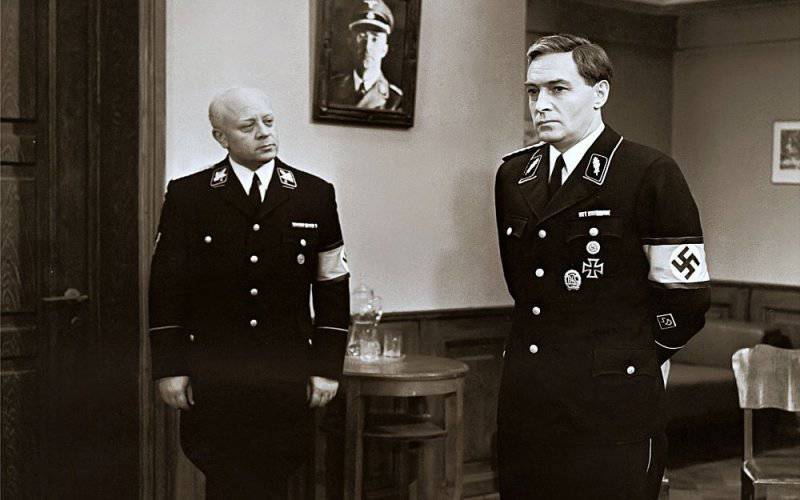
Information